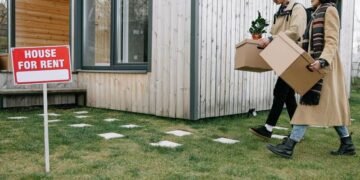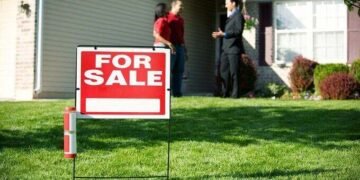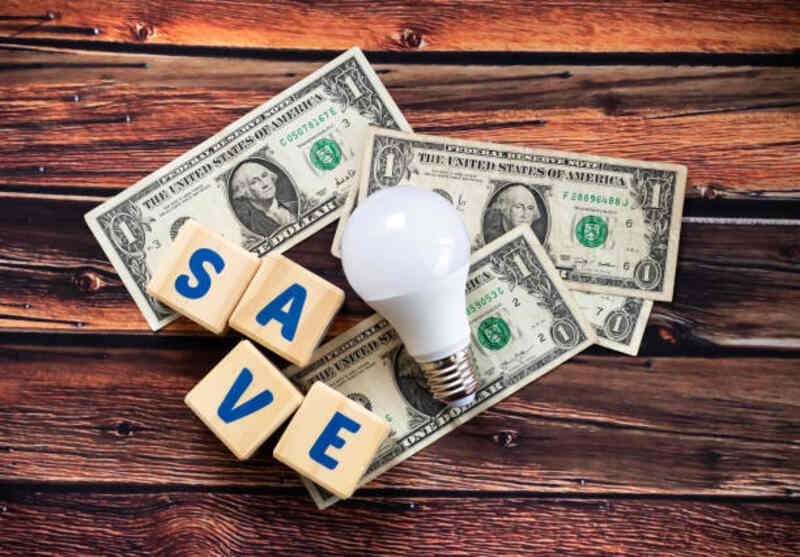Setting out on the mission to find a comfortable house, the question of whether to buy or rent takes center stage. The Best Reason behind for someone would want to lease a House instead of buying one is saving from the maintenance bills and property taxes which is itself more than the rent.
Owning a house is a dream for everyone, but there are some awesome benefits to renting that you are not aware of. We will explore why some (rich) people prefer renting and why it is a very wise decision.
Reasons Someone Would Lease a House Instead of Buy One?
No Worries About Maintenance Cost
Owning a house means you do all the fixes. It is on you, from a small leak to a broken heater or a damaged roof. And these fixes can arise at any time and cost you a lot. Every year, homeowners spend between 1% and 4% of their home’s worth on this, which grows as the house ages.
However, if you rent, the owner deals with big fixes. Call your landlord when winter arrives and the heater is not working. This reduces stress and costs. One significant benefit of leaving is that there are no maintenance concerns. Knowing you won’t pay for expensive repairs gives you peace of mind. When making your monthly budget, you don’t have to worry about unexpected costs.
Enjoy Different Amenities
When you rent a house, especially in an apartment or planned community, you can use cool stuff you might not be able to afford if you owned a home, such as a playground, gym, pool, clubhouse, or doorkeeper. Additionally, some places host parties for their residents.
With fun and friends, these benefits improve your quality of life. If you bought a home, making or keeping these things could cost a lot. The pool alone costs $28000 to $55000 and more to maintain. Also, a home gym could be pricey.
Additionally, if anything breaks, the landlord fixes it. Renting gives you a good life with cool stuff, making it better than buying for some people.
No Property Tax
When you own a home, you can’t escape Real Estate Taxes. Local governments are responsible for these taxes, which pay for schools and roads. Your residence’s value and location will determine how much you spend.
The average American homeowner paid 1.07% of their property’s annual tax value in 2021. However, some states, such as New Jersey, charged a whopping 2.49% tax. That pays almost $ 7,500 a year on a $ 300,000 house.
If you rent a house, you don’t handle property taxes. The landlord deals with that. They may include it in your rent, but you won’t receive a separate tax invoice. Your rent will increase because of tax jumps.
No Real Estate Taxes when you rent means fewer worries. Leasing simplifies your financial situation, which is another reason why people like it.
No Massive Down Payment
The first big thing when you want a house is the down payment. It is like the money you give first when you buy a house. Banks typically require you to pay 20% of the home’s cost upfront. Thus, if your dream house costs $300000, you will need to give them $60000 in advance,
For many people who desire a home, this large sum of money may be a significant issue. It could take you many years to get this much money and more. Moving expenses, house checks, and closing costs can add up.
On the other hand, leasing is different. It costs less initially. You pay the first and last month’s rent with the security deposit. If your monthly rent is $1500, you need $4500 at the start. That is way less than $60000. Therefore, renting a home will be less expensive.
So, if you prefer to avoid stressing about saving a ton of money and want a home now, renting is an excellent choice.
Renters Enjoy More Flexibility
Leasing a house is super flexible compared to owning one. You are stuck in one place for a long time when you own. Moving takes months and is challenging. However, leasing only requires a one-year commitment. When the year ends, you can renew or move. Generally, it is great if your job or life makes you move a lot.
Even if you must go before your year ends, you can sublease or talk to your landlord. It might cost something, but it is easier than selling a house.
Leasing also gives you space flexibility. Move if you need more or less space—no need to sell and buy again. So leasing is very convenient if you enjoy having flexibility in where you live and how you handle changes. It all comes down to being able to change with life as it happens.
Zero Concern About Decreasing Property Value
Owning a home means its value goes up and down with the market. The local demand, interest rates, and economic conditions can all affect the value of your house. You could lose a lot of money when selling if the market drops.
For example, in 2008, the market went down a lot. People had more debt on their homes than they were worth. It is called being “underwater” on your mortgage.
But if you rent, you don’t worry about market ups and downs. Your rent stays the same during your lease, even if home prices drop or the market crashes. Renting keeps you safe from market changes and money trouble.
Flexibility To Downsize
Our housing needs also change as life goes on. When your needs change, leasing makes it simple to move into an upsize and downsize. Renters can easily cut costs by downsizing. If a rented home is too expensive, they can move to a cheaper place when the lease ends, reducing living expenses.
Leaving is an excellent option for retired people who require less space. It can be not easy to find buyers for an expensive home. Selling costs add up, and if you renovate, it might not be a profit. Retires who lease can get what they need without the hassle of buying and selling.
Fixed Rent Amount
Owning a home brings financial surprises, like sudden repairs or large bills. Budgeting is tricky when mortgage, property taxes, and possibly HOA fees exist. On the other hand, leasing fixed rent is your primary expense; significant repairs are the landlord’s responsibility. As a result, monthly payments become more predictable and manageable.
Moreover, renters’ insurance is cheaper than homeowners’ insurance. It was roughly $15 per month, significantly less than $1211 per year for homeowners in 2021. Leasing gives a stable financial picture, making planning simple without worrying about costly surprises. This is great for those who like the clear and straightforward money side of renting.
Easy Tip to Successfully Lease a House?
Leasing a house instead of buying one is bright but requires some planning. Here are some tips for successful leasing:
- Before leaving, do your homework. Do some research on the market, neighborhood, landlord, and property. Visit the house, look around, and discuss the lease terms, rules, policies, utilities, and maintenance. Know your tenant better. See what other people have to say about the landlord and property by reading reviews and ratings. This helps you in selecting the house you wish to lease.
- Once you find a house you like, it is time to negotiate your lease. Discuss rent, deposit, duration, renewal, pet, parking, and amenities. Ask for changes if you want them made, such as painting or installing something. Make sure everything is clear and agreed upon.
- After signing the lease, follow the rules. Pay rent on time, take care of properties, and respect the landlord’s rules. This guarantees that the rental process will go smoothly and positively for you and the landlord.
- Keep a record of all communication with the landlord- emails, texts, and calls. This helps when conflicts come up. Having a record guarantees that you can solve any issue that might come up during the lease.
- Record everything in writing. This includes the lease and any changes or repairs the landlord agrees to do. Having everything in writing ensures that you and the landlord are in agreement and helps prevent confusion.
- As a tenant, you have legal protection for certain rights. Knowing your rights will help you defend yourself if any issues with the landlord arise.
- At the lease start, tenants pay a security deposit, usually one month’s rent. To pay for damages paid during the lease. At the end of the lease, the landlord must give the tenant their deposit back if there is no damage.
Conclusion
There are plenty of benefits to renting a house rather than buying one. It offers flexibility, lower upfront costs, and avoids maintenance duties or property value ups and downs. With leasing, you can have a short-term residence without worrying about paying for it in the long term or managing repairs. It is a budget-friendly opportunity to live in a fantastic neighborhood, ideal for individuals who want the freedom to move without selling. It ultimately comes down to personal taste, financial situation, and lifestyle requirements, whether to buy or lease.















